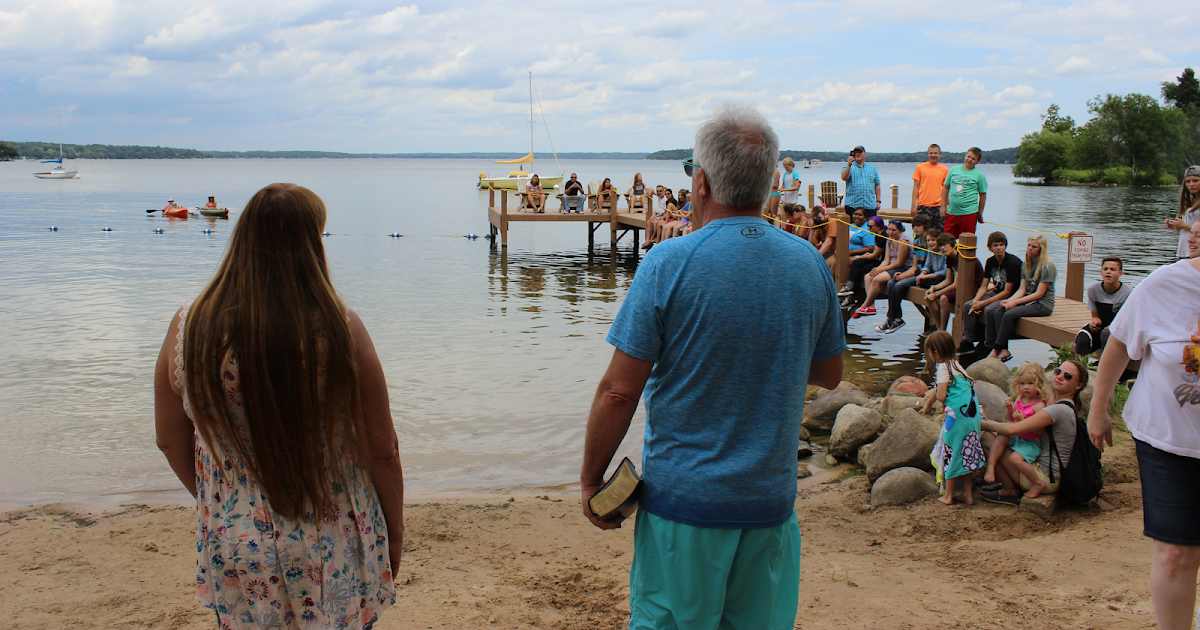Be joyful.
But, in these turbulent times? How is it possible to be joyful with everything we see on the news?
Because part of the "fruit," the produce, of the Holy Spirit in us is joy. Jesus-followers are joy-bearers. Galatians 5:22-23 says:
The fruit of the Spirit is love, joy, peace, forbearance, kindness, goodness, faithfulness, gentleness and self-control. Against such things there is no law.
The Message translation reads this way.
But what happens when we live God’s way? He brings gifts into our lives, much the same way that fruit appears in an orchard—things like affection for others, exuberance about life, serenity. We develop a willingness to stick with things, a sense of compassion in the heart, and a conviction that a basic holiness permeates things and people. We find ourselves involved in loyal commitments, not needing to force our way in life, able to marshal and direct our energies wisely.
Legalism is helpless in bringing this about; it only gets in the way.
Jesus has told me that, if I live connected to Him, I will "bear much fruit." This includes joy.
But, again, what about during the tough times? Is it possible to produce joy when things around me are falling apart?
I believe so. Look at Paul's letter to the Philippians. Where is Paul writing from? The answer is: jail. Paul is imprisoned. Yet even this situation does not rob him of joy. That must have been frustrating to his captors!
Paul opens the letter this way.
I thank my God every time I remember you. In all my prayers for all of you, I always pray with joy because of your partnership in the gospel from the first day until now.
Imagine Paul, praying with joy. Might he have a smile on his face? Could he have laughed out loud? Even though in jail?
James 1:2-4 gives us this remarkable counsel.
Consider it pure joy, my brothers and sisters, whenever you face trials of many kinds, because you know that the testing of your faith produces perseverance. Let perseverance finish its work so that you may be mature and complete, not lacking anything.
Here is this word "joy," from Greekbible.com.
χαρά,n \{khar-ah'}
1) joy, gladness 1a) the joy received from you 1b) the cause or occasion of joy 1b1) of persons who are one's joy
It's an emotion! The appropriate response is: Rejoice!
Paul's letter to the Philippians is saturated with joy. Sixteen times, in just four chapters, Paul uses words like 'rejoice' or 'joy' to describe what our state of mind or general attitude should be as Christians.
He writes this joy-soaked letter in the midst of his own difficult circumstances. He was under house arrest in Rome, chained to a different Roman soldier every few hours. He had just spent three years in prison in Caesarea. By the time he wrote to the Philippians, he had been in Roman custody for several years. Yet, rather than allow his circumstances to drive him to despair, he experienced deep gladness and invited the Philippians to share in this.
Paul ends his letter with some more joy. In 4:1 we read:
Therefore, my brothers and sisters, you whom I love and long for, my joy and crown, stand firm in the Lord in this way, dear friends!
Is this naive, unrealistic, and out-of-touch? Not at all. The joy of the Lord provides a lens, through which I see all of life, including some harsh realities.
I know this personally. At seventy-one years old (really??!!), I have experienced suffering and loss. As a pastor, I am communicating, nearly every day, with persons who are broken in some way. Today has been no exception! But, through it all, I resolve to not allow the enemy to prowl in my vineyard and the kill the joy the Spirit is growing in me.
Is this oil of gladness like the emotion I feel when I look at our first grandchild, Levi? I think so.
During this season of life, the enemy is not robbing me of the joy that is mine, regardless of the circumstances.
Join me as we fix our eyes on Jesus, the pioneer and perfecter of faith. Who, for the joy set before him, endured the cross, scorning its shame, and sat down at the right hand of the throne of God. (Hebrews 12:2)
Stay joyful.
Stay Connected

When a furious storm assaults the land, like a tornado, or a hurricane, one thing people do not want to see is the loss of power. I remember this happening to us a few times. In the aftermath of one storm, we lost power for several days. That experience occurred when cell phones were nonexistent.
The power loss meant loss of phone connection with friends and loved ones, danger of losing refrigerated food, using flashlights and occasional candles in the dark, concern over the basement's sump pump not working, and waiting... for the power to return.
When a storm hits, do all you can to stay connected to your power source. This principle holds today, as we are experiencing an ungodly trinity of storms - pandemic, economic panic, and pandemonium in the streets of some of our cities.
In these physical and cultural storms, stay connected to Jesus. Reinforce your attachment to Him.
It's in life's storms that we discover how branch-like we are.
Be branches, connected to Jesus, the true Vine. In John 15 Jesus instructs His disciples with these words.
5 “I am the vine; you are the branches.
If you remain in me and I in you, you will bear much fruit;
apart from me you can do nothing.
6 If you do not remain in me, you are like a branch
that is thrown away and withers;
such branches are picked up, thrown into the fire and burned.
7 If you remain in me and my words remain in you,
ask whatever you wish, and it will be done for you.
8 This is to my Father’s glory, that you bear much fruit,
showing yourselves to be my disciples.
Note that Jesus does not add this qualification: WARNING: IN THE STORMS OF LIFE THIS WON'T WORK.
Today is the day the Lord has made. I will rejoice and be glad in it. This has not changed. Rejoicing attaches me to Jesus.
I begin the day with opening the Book. For months now I've been starting with the book of Proverbs. As I read the Word, it attaches me to Jesus.
I am praying this morning. This is my habit. Praying is talking with God about what He and I are doing together. Today. Praying is intimate conversation with God. In praying, I strengthen the connection with Him.
God is a strong tower. He still stands. God is an anchor. The anchor still holds. God is a tree that shall never be uprooted.
Therefore, my dear brothers and sisters,
stand firm.
Let nothing move you.
Always give yourselves fully to the work of the Lord,
because you know that your labor in the Lord
is not in vain.
Stay attached.
Stay connected,
Stay Focused
 |
| (Linda, with out grandson Levi - June 2020) |
Linda and I have been at Redeemer in Monroe for twenty-eight years. What a blessing our church family is to us!
When we interviewed for this position we shared our priorities with Redeemer’s leaders. They still are:
1. God first.
2. Our marriage second.
3. Our children third.
4. The church fourth.
This is our focus. The pandemic and cultural chaos has not changed this. In fact, it intensifies our focus.
We will not lose sight of God, our marriage, and our family, for the sake of the ministry God has given us.
If we lose sight of God, we will then be like a branch detached from the trunk of the tree. Such a branch, said Jesus, is worthless. This has always made sense to me. Why would I listen to a preacher if they don’t habitually meet with God to pray, and meditate on Scripture?
Why should anyone listen to me if I do not invest in my marriage?
What spiritual integrity would I have if I neglect my children?
Time with God.
Time with Linda.
Our sons are older, but we still love connecting with them.
Time being with, and meeting with, our church family.
Keep it simple.
Stay focused on life's most important things.















